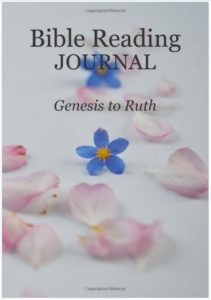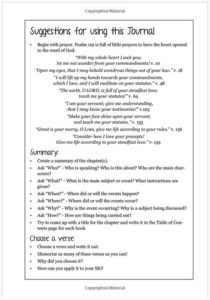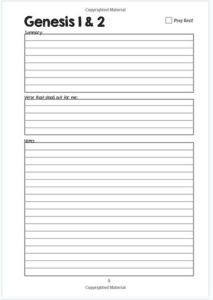The first time we read about a group of people hearing the words of God, it was at the foot of a mountain. Before they came to hear, they had to be sanctified and wash their clothes. A boundary was set around the mountain that no one was to breach on pain of death.
“And it came to pass on the third day in the morning, that there were thunders and lightnings, and a thick cloud upon the mount, and the voice of the trumpet exceeding loud; so that all the people that was in the camp trembled. And Moses brought forth the people out of the camp to meet with God; and they stood at the nether part of the mount.” (Exodus 19:16-17)
When we come to hear the words of God, do we prepare ourselves? Do we tremble?
“And all the people saw the thunderings, and the lightnings, and the noise of the trumpet, and the mountain smoking: and when the people saw it, they removed, and stood afar off. And they said unto Moses, Speak thou with us, and we will hear: but let not God speak with us, lest we die.” (Exodus 20:18-29)
It was not a comfortable experience to hear from the God of all the earth. It was terrifying and God agreed to let Moses speak to them for Him.
And Moses came and told the people all the words of the LORD, and all the judgments: and all the people answered with one voice, and said, All the words which the LORD hath said will we do.” (Exodus 24:3)
When we hear the words of the LORD, do we determine to also do them?
Moses wrote down the words of the LORD for the people so that they would always have them. He wrote about their journeys by the commandment of the LORD and he wrote down the laws that God gave them. The people were instructed to share the stories with their children about the deliverance from Egypt and all the great acts that God had done during their years of wandering in the wilderness. They were encouraged to lay up His words in their hearts and teach them to their children daily, so they would understand the full book of the law regularly.
“And Moses wrote this law, and delivered it unto the priests the sons of Levi, which bare the ark of the covenant of the LORD, and unto all the elders of Israel. And Moses commanded them, saying, At the end of every seven years, in the solemnity of the year of release, in the feast of tabernacles, When all Israel is come to appear before the LORD thy God in the place which he shall choose, thou shalt read this law before all Israel in their hearing. Gather the people together, men, and women, and children, and thy stranger that is within thy gates, that they may hear, and that they may learn, and fear the LORD your God, and observe to do all the words of this law: And that their children, which have not known any thing, may hear, and learn to fear the LORD your God, as long as ye live in the land whither ye go over Jordan to possess it. (Deuteronomy 31:9-13)
Do we lay His words up in our hearts? Do we speak of them to our children when we walk by the way, when we rise up, when we lie down? In the past seven years, have we read through every bit of the Bible with our family?
Moses spoke about the time when the people of Israel would want a King over them. One who would be a leader over people, would also need to be very familiar with the words of God so that he could lead well, make good decisions and not be lifted up in pride.
And it shall be, when he sitteth upon the throne of his kingdom, that he shall write him a copy of this law in a book out of that which is before the priests the Levites: And it shall be with him, and he shall read therein all the days of his life: that he may learn to fear the LORD his God, to keep all the words of this law and these statutes, to do them.” (Deuteronomy 17:18-19)
It is easy today to have several copies of the Scriptures, but have we made the effort to write them out by hand ourselves – perhaps as we study them, or perhaps to put up on the wall?
During the long and evil reign of Manasseh, the book of the law became lost. It was found again during the reign of Josiah.
And Hilkiah the high priest said unto Shaphan the scribe, I have found the book of the law in the house of the LORD. And Hilkiah gave the book to Shaphan, and he read it. … And it came to pass, when the king had heard the words of the book of the law, that he rent his clothes. (2 Kings 22:8,11)
Does the reading the words of God provoke a similar emotional response in our hearts?
Once Josiah knew what was in store for his people because of their unfaithfulness, he took action to try to change this. He had the book of the law read to all the people and did what he could to remove everything that was abominable to God from the kingdom.
Does reading the words of God provoke similar action in our own lives?
And the king stood by a pillar, and made a covenant before the LORD, to walk after the LORD, and to keep his commandments and his testimonies and his statutes with all their heart and all their soul, to perform the words of this covenant that were written in this book. And all the people stood to the covenant. (2 Kings 23:3)
Many years later, the book of the law was once again read to people who had returned from captivity. They could now look back and see how they had brought upon themselves the judgments of the LORD. They could also see that He was a God who kept His promises, not only of judgment, but also of restoration. It brought them to tears, but also gave them hope.
And Nehemiah, which is the Tirshatha, and Ezra the priest the scribe, and the Levites that taught the people, said unto all the people, This day is holy unto the LORD your God; mourn not, nor weep. For all the people wept, when they heard the words of the law. (Nehemiah 8:9)
Does reading the words of God bring us to confession, and also to worship?
It was not really all that long ago that the Bible was not available the way it is today. In fact, the man who translated the Bible into English was killed and burned at the stake.
Are we willing to risk our lives to have a copy of the Bible that we can read and understand?
As Christadelphians, we have a tradition of regular Bible reading using the Bible Reading Companion. It is a good tradition. Although there are many other ways to read the Bible, it is one that has stood the test of time. However, just as it is possible to hear the noise of someone speaking to you, and yet not be listening or understanding what they are saying; we can also read in order to get the readings done, and really not comprehend anything we have read. How do we keep this from happening?
During 2020, God willing, we hope to encourage each other in regular reading of the Scriptures. We hope to post a few little challenges to go along with each book in the first portion of the Bible Reading Companion. To go along with that, we also have a daily challenge: to create a brief summary of each reading, choose a verse to write out, and some ideas to choose from to increase comprehension and application. If you would like, you can purchase a journal for this purpose from amazon.ca, amazon.com, and amazon.co.uk (the link goes to the journal). To be clear, there is no profit being made on these Bible Reading Journals (Genesis to Ruth), the cost is the cost of production. If this option is not for you then, use your own notebook to keep track of your thoughts. Give it a try!
So then faith cometh by hearing, and hearing by the word of God. (Romans 10:17)




